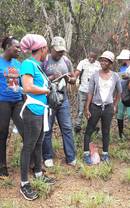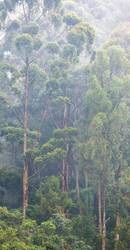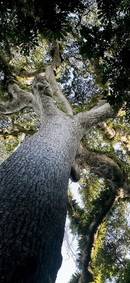News

Following a ten-day intensive training program, the first Liberian National Forest Inventory (NFI) was launched on 4 June 2018 in Lofa County. Funded by the Forest Carbon Partnership Facility, the NFI is implemented by the Liberian Forestry Development Authority (FDA). For the first time in the country, the data collection for the NFI was fully digitised thanks to the use of the Open Foris toolkit.
According to FAO’s Global Forest Resources Assessment 2015, 43% of Liberia is covered with forests. The biodiversity of the Liberian forests is rich with endemic and endangered species. A large proportion of the country’s rural population...

Since 2013, the Food and Agriculture Organization of the United Nations (FAO) has been collaborating closely with the Virtual Center of Excellence on Forest Monitoring (CEVMF) to reinforce South-South Cooperation in forest monitoring. This partnership operates within the framework of the Mesoamerican Strategy for Environmental Sustainability that aims to deepen and diversify existing regional cooperation in environmental matters in the context of the growing economic, political and social connection between ten countries of the Mesoamerican region. National Forest Monitoring Systems (NFMS) in Latin-America have consistently evolved and progressed, thanks to the efforts of the regions’ numerous stakeholders and the increasing...

Together, African forests form one of the biggest carbon sinks in the world. Recognising the role of forests in helping mitigate climate change, many African countries are working towards implementing Reducing Emissions from Deforestation and Forest Degradation (REDD+) activities.
In such a vast region, each forest has unique biodiversity and ecological systems, as each REDD+ country has differing political, economic and social systems which interact with forests. Nevertheless, the design of the forest monitoring system, even if considering national circumstances, is based on international agreements and rules. The United Nations Framework Convention on Climate Change (UNFCCC) motivates countries to set up...

Food and Agriculture Organization of the United Nations (FAO) has recently launched its support to prepare three countries for the Green Climate Fund (GCF) in Equatorial Guinea, the Republic of Congo and the Lao People's Democratic Republic. FAO’s technical assistance programme on GCF readiness aims to strengthen capacities and support stakeholder consultations to increase country access to the GCF while assisting in the identification of mitigation and adaptation funding opportunities in the agriculture, forestry and other land use sectors (AFOLU). Amounting to approximately USD 2 million in technical assistance, these projects will support countries to complete key elements of their...

Forests sequester carbon, support the livelihoods of 1.7 billion people and act as vital reservoirs for biodiversity. However, as a valuable resource, forests have frequently been the spark that ignites conflict among multiple stakeholders having divergent priorities for the same landscape. When one group — whether inadvertently or deliberately — withholds access to a forest resource or to the decision-making process from another user group, non-violent or violent conflict is more likely. Conflict can also lead to the inequitable distribution of benefits, disputes over land rights and access, and a lack of engagement with the forest management process. It is estimated...

